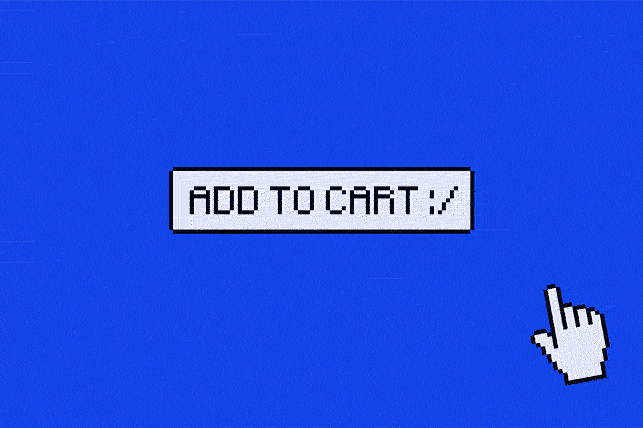What's the Link Between Depression and Impulsivity

Depression and anxiety are prolific purveyors of fake news, capable of making a person believe any potentially positive facet of their life is a house of cards, if not a cruel hoax.
In this constant state of emotional uncertainty, intermingled with persistent feelings of worthlessness, emptiness and profound sadness, it's understandable that some people might seek solace in problematic places.
Typically, depression is closely associated with inaction and a lack of motivation, but for some people, the symptoms of emotional distress become a catalyst for impulsive behaviors, including shopping sprees, binge eating, substance abuse and risky sex. In some instances, depression-fueled impulsivity can lead to self-harm, including suicide.
What is emotional impulsivity?
Impulsivity isn't inherently negative. In some contexts, the ability to make quick decisions can prove vital and encourage adventurousness, creativity and healthy risk-taking, said Kim Chronister, Psy.D., a licensed clinical psychologist in Los Angeles.
Additionally, impulsiveness can help a person avoid overthinking and overanalyzing, which could be detrimental in itself, said Jessica Steinman, M.A., L.M.F.T., a therapist in Los Angeles who specializes in families, relationships and sex addiction.
"Sometimes it can be better for some to act on instinct than mull a decision over endlessly," she added. "For example, someone may struggle with whether or not to sign a lease or make a big purchase, but if they wait too long, the opportunity may pass them by."
'Impulsivity can be harmful if it negatively affects a major area of functioning, such as relationships, career or health.'
On the other hand, impulsivity can be harmful if it negatively affects a major area of functioning, such as relationships, career or health, Chronister said. This is often the case with emotional impulsivity or decisions driven by intense emotional states.
"When a person is at risk for making impulsive decisions when they're in a positive mood—for example, excessive online spending after getting a job offer—they tend to have higher positive urgency," said Erica Birkley, Ph.D., assistant professor of psychiatry and behavioral neuroscience at the University of Cincinnati College of Medicine. "Someone with high negative urgency would be at risk for impulsive action when in a negative mood state. An example might be binge drinking after a breakup with a romantic partner."
The capacity for emotional impulsivity, or emotional dysregulation, is "neurobiologically wired in all of us," said Jody Carrington, Ph.D., an author and clinical psychologist based in Alberta. However, most people do their utmost to suppress and conceal this characteristic, and some are more influenced than others.
Why depression emotional impulsivity are linked
People with depression may engage in impulsive behaviors for a few reasons, experts agreed.
For one, it's simply more challenging to control impulsions when upset, said Sheri Johnson, Ph.D., a professor of psychology at the University of California, Berkeley, who specializes in emotion-related impulsivity.
Risky behaviors, such as those that accompany mood swings, might allay emotional pain—if only temporarily—by stimulating the release of "feel good" chemicals in the brain, Chronister and Steinman said.
One such chemical is dopamine, a neurotransmitter involved in the brain's reward response.
"It makes people more likely to go for instant gratification rather than a delayed reward," Chronister noted.
Risky behaviors, such as those that accompany mood swings, might allay emotional pain if only temporarily by stimulating the release of 'feel good' chemicals in the brain
Serotonin, another hormone, is associated with happiness, focus and relaxation.
"When someone is doing something impulsive, there may be risk, excitement or danger involved, and that can release the neurochemicals into the brain to feel good or happy or excited, which someone with depression wants to feel," Steinman said.
"The more dangerous, risky, risqué, exciting, secretive or taboo the decision or behavior, the more dopamine and serotonin gets released in the brain," she added.
As a compounding factor, apathy and emotional numbness symptomatic of depression can make someone less heedful of potential adverse outcomes.
"Sometimes when you're sad, and your world doesn't feel safe, you take bigger risks because you feel like, 'What's the point?' Futility just sets in," Carrington said.
This feeling of futility can manifest in impulsive behaviors such as overeating, excessive drinking or overspending, or more self-destructive actions that put a person's life or relationships in the crosshairs, she continued.
Impulsivity may also be a means to cope with underlying insecurity, indecisiveness or anxiety, which frequently occur with depression, said Chronister and Edward Ratush, M.D., a psychiatrist and founding partner at SohoMD in New York City.
"They may make impulsive decisions or take impulsive actions in order to feel more in control compared to the chaotic way that they feel inside," Chronister said.
Prevalence and risk factors
It's unclear how many people with depression experience emotional impulsivity because impulsivity is more a continuum than a category, Johnson said.
Additionally, people with depression tend to exhibit more subtle impulsive behaviors than those with manic depression, Ratush noted. Moreover, impulsivity is a phenomenon that can occur within or outside the context of other disorders.
"For the most part, impulsivity can be studied independently from other clinical episodes—depression, psychosis, mania or hypomania—and that independence adds to the general lack of knowledge behind correlative depression/impulsivity," he explained.
However, Carrington added that certain characteristics might increase a person's risk.
"Emotions will not kill you," she said. "Depression and anxiety will not kill you. But not talking about it might."
Everyone has a story, she continued. When people haven't had the chance to share or make sense of their stories, they may be more likely to behave impulsively and destructively. This is particularly true of people who have experienced trauma or other profoundly adverse events that can be incredibly challenging, if not impossible, to effectively cope with alone.
People who use drugs and/or alcohol are more vulnerable to impulsive behaviors, including potentially dangerous ones. Research published in 2020 indicated there is a strong correlation between substance use disorders and mental health conditions, including anxiety, depression, manic depression and post-traumatic stress. One study published in 2008 in Current Opinion in Psychiatry found about one-third of people with major depressive disorder had co-occurring substance use disorder.
Although it may provide temporary respite, substance use ultimately tends to intensify symptoms, creating a vicious cycle.
How impulsivity affects sexual health
"During an intense emotional state, people may do things that they later regret," Johnson said. "This can intensify their sense of depression, along with any interpersonal costs."
The costs can be particularly profound when impulsive behaviors imperil a person's health, well-being and relationships. Although people with depression generally have lower libidos, some people are more promiscuous when depressed, Carrington explained. When a person is feeling "awful" and alone, they may engage in sex to obtain intimacy and validation, despite the potential negative effects.
"Often, we're looking to feel seen, wanted, like we're desired," she added. "And when that happens and we are really connected, it fills us up. But when that happens in a moment of impulsivity, it doesn't help long term. It tends to perpetuate the depression further."
Promiscuity isn't necessarily a precursor for negative outcomes, Birkley said. But people who impulsively engage in sexual behaviors that run counter to their values tend to experience profound distress, shame and regret and can encounter depressive symptoms such as stress, difficulty concentrating, trouble sleeping and, in some cases, feelings of hopelessness and thoughts of self-harm or suicide.
Additionally, risky sexual behaviors can lead to sexually transmitted diseases (STDs) or unintended pregnancies, and substantially impact relationships, Chronister and Ratush said.
"I've had several clients who have contracted STDs and HIV after engaging in risky sex," Chronister said. "Some were manic, others were depressed, and some were under the influence of stimulant narcotics. Risky sex, infidelity and acting out impulsively in relationships can make people spiral into more depression and more self-sabotaging behaviors. It can become a dangerous cycle which can negatively affect their partners and family emotionally."
If that cycle persists, impulsive behaviors may become compulsive, Steinman noted.
"When impulsive becomes compulsive, then that can become a real problem," she said. "When someone's life becomes about acting on these impulses all the time, no matter what the consequences or how it can make someone's life unmanageable, then it may become an addiction. When people are impulsive with sexual or romantic relationships, it can become even more of a problem because an additional chemical is released in the brain: oxytocin. And that feels so good."
"It's safe to say that there's a lot of pain and misery that can come with unchecked impulsivity brought on by undiagnosed mental health disorders," Ratush said.
How to cope with emotional impulsivity
"You have to name it to tame it," Carrington said, quoting psychologist Dan Siegel, an award-winning educator and clinical professor of psychiatry at the UCLA School of Medicine and the founding co-director of the UCLA Mindful Awareness Research Center in Los Angeles.
The concept that recognizing an emotion is fundamental to addressing the emotion is a widely accepted technique to stop spiraling thoughts and assuage and regulate emotions, such as fear or rage. The technique can also apply to managing potentially harmful behaviors, including impulsivity.
"I think the first step is knowing if you're the type of person who struggles in this way," Johnson explained. "Do your impulsive behaviors tend to happen when you are upset? If so, then key strategies might involve having healthy, constructive skills for relieving distress—such as meditation, relaxation and other soothing activities—and learning to tolerate distress without engaging in behaviors that one would regret later."
'Key strategies might involve having healthy, constructive skills for relieving distress such as meditation, relaxation and other soothing activities and learning to tolerate distress'
Steinman noted one common in-the-moment technique is to "take a pause, take a beat." Before acting impulsively, take a moment to breathe and collect yourself.
"When you take a deep breath, relax your jaw, drop your tongue from the roof of your mouth and wiggle your toes and smile," Carrington said. "Smile even if it's forced. You put yourself and your body in a relaxed state. The data is clear on this: The body keeps score. It's not necessarily what we think it is. Getting a body back in the state of calm, that changes everything."
She recommended speaking with a friend, confidant, therapist or other trusted person and considering the "bigger picture."
"When you're in a state of depression, you sort of lost sight of the bigger picture," she said. "So what's your 'why?' What's your legacy? How much do you matter to so many people in this world in this moment?"
Additional tips from Chronister and Birkley included:
- Get adequate sleep as sleep deprivation is linked to a host of issues, including inhibited decision-making and worsened anxiety and depression symptoms.
- Know your triggers and avoid them as much as possible.
- Practice deep breathing, inhaling for longer than you exhale.
- Practice mindfulness exercises daily.
- Use grounding techniques.
- Use positive distractions, such as music, movies, movement, hiking and hobbies.
- Use self-check questions and write down the answers. Example questions might be:
- "Is this healthy for me?"
- "How will this action affect my relationships/health/job?"
- "If I do this, can the consequences be repaired?"
For long-term relief, however, managing the underlying depression is key, Johnson said.
"Following a full psychiatric evaluation and diagnosis, therapy, such as cognitive behavioral therapy, and antidepressant medications may help with that goal," she added.
A healthcare provider might also recommend lifestyle adjustments, including diet, exercise and self-care strategies, Ratush explained.
"In pursuing therapy, it's important to work with a therapist who has a history of treating impulse control disorders and can offer a variety of tactics and treatment options," he added. "An experienced therapist will help the patient break down the process that leads to impulsive actions, identifying triggers.
"Often, building routines can help break a cycle of impulsivity," Ratush continued. "Sometimes close friends and family may be recruited to help develop a network of accountability partners. Whatever the treatment process looks like, it's important to identify the underlying disorder, whether that's depression, anxiety, borderline personality disorder or something else."




















